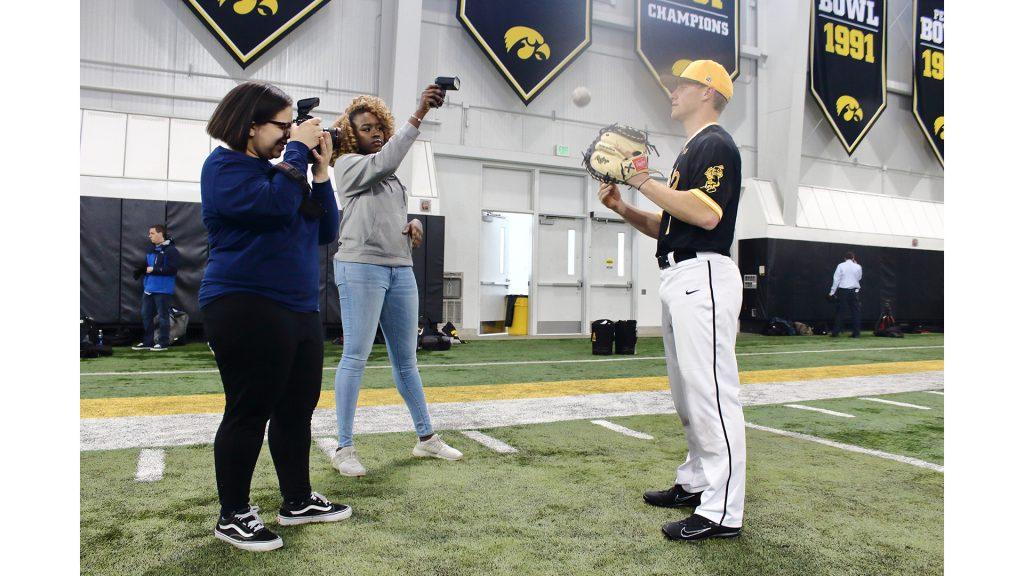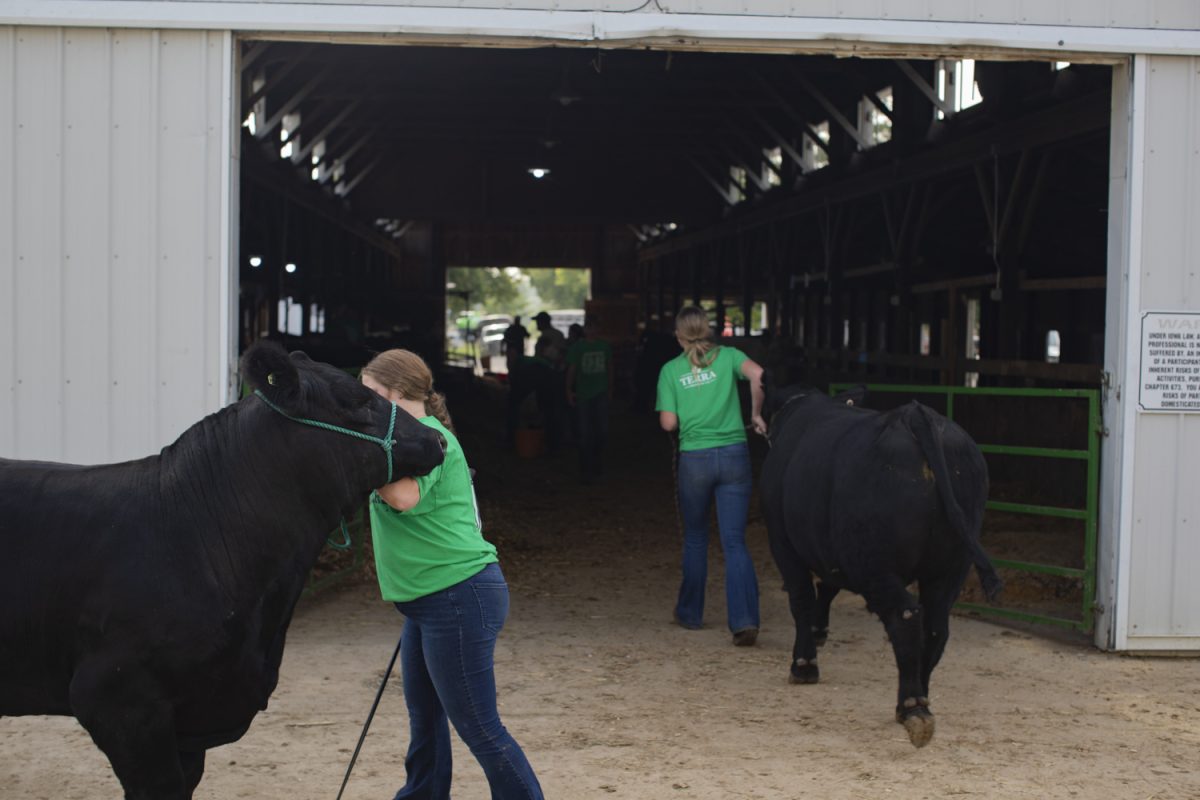Throughout the almost two years I have been a student at the University of Iowa, I’ve become accustomed to learning in spaces that don’t contain people who look like me. In my year and a half of working as a photojournalist at The Daily Iowan, I’ve become used to working in spaces that don’t have people who look like me. No one sold Iowa City to me by saying it was diverse.
The DI has given me the chance to grow in countless journalistic situations. As photo editor, I’ve had many interesting work opportunities. Last winter, I was the primary photographer for the 2018 women’s basketball season, and my determination in improving my ability to cover this beat, coupled with my role as photo editor, culminated in my getting chosen to cover Iowa’s run in both the Big Ten and NCAA first-round tourneys in March, in Indianapolis and Los Angeles, respectively.
Click below for more photos
[masterslider id=”275″]
But perhaps the part of the experience that stuck with me the most was the continual inner monologue about my role as a black, woman photojournalist. Getting the opportunity to travel for work has been a dream, and I’ve attempted to hold every memory from the experience close to me; I journaled through a thread on Twitter, I still have every receipt I received, and of course, I took tons of photos. So to have the most potent part of the whole experience be the ability to see what future could look like — my future as one of few black, woman photojournalists — is a little unsettling to me.
hello world, i’ve just landed in Los Angeles to cover the NCAA women’s basketball tournament and this is my trip thread
— Lily Smith (@lilyas53) March 17, 2018
I’ve had less than pleasant experiences when working for the DI outside Iowa City. After an experience in December in Ames covering men’s basketball in which I was verbally harassed by a male photographer, my experience there was soured, and I ran home to Iowa City with my tail between my legs, too spooked to ever leave again. My working under pressure ended up creating some of the best work I’ve made at the DI, though. Despite my photos from that game being a turning point in my skills as a photographer, I feared that my anxiety toward this happening would ruin my ability to cover the game well.
I set my gear down on my spot on the baseline at Bankers Life Field House in Indy and scanned the bustling arena. The photo on my credential, me smiling, taken maybe 20 minutes before, was a stark difference to the look on my face, nerves and bewilderment. A USA Today stringer warmed me up to the space throughout the game, I introduced him to the quirks of the Iowa women’s basketball team, he told me about the dying art of getting a job in journalism.
Click below for more photos
[masterslider id=”276″]
He later emailed me a few kind words, thanking me for being a good sport and having a good attitude. I thank any professional out there a million times over for being nice and helpful to me when I’m learning. I often cater my outside appearance to the people I’m around; there are very few people who know me who really know me. So if I can’t create a version of me who can connect to white counterparts in my field, I’m afraid WOC students who come after me, who are more confident in their abilities than I am, and who hold more ownership of their blackness than I often do, won’t connect or succeed as well.
Despite the confidence-building that has taken place during this job, I still spend a lot of time being anxious. How are people perceiving me? Am I allowed to be angry, and argue my stance? Does this make me difficult to work with? Am I perceived as an angry black woman? I’d like to believe no one in my life sees me as only my race, but it only took a few backhanded comments and microaggressions from people I consider friends and family before I realized that wasn’t true, whether I attempt to own my place in this world as a black woman or not. I feel like there’s no way for me to win.
Click below for more photos
[masterslider id=”286″]
Every black person I know is on an eternal grind for success, so people like them, both in terms of class and race – don’t have to work as hard to obtain success in the future.
One day last summer, I went to visit my old high school journalism teacher’s class at Hoover in Des Moines. The school is considered the most diverse high school in the state, with a minority enrollment of 67 percent of the students (Iowa’s average is 22 percent). I found myself standing in front of a diverse group of kids who were trying to figure out their next step.
That was my moment.
Being back in my hometown, away from Iowa City for a brief period, I was in a space surrounded by others who look like me. That was the moment I realized that I, too, could influence future photojournalists, just as others have done for me.













